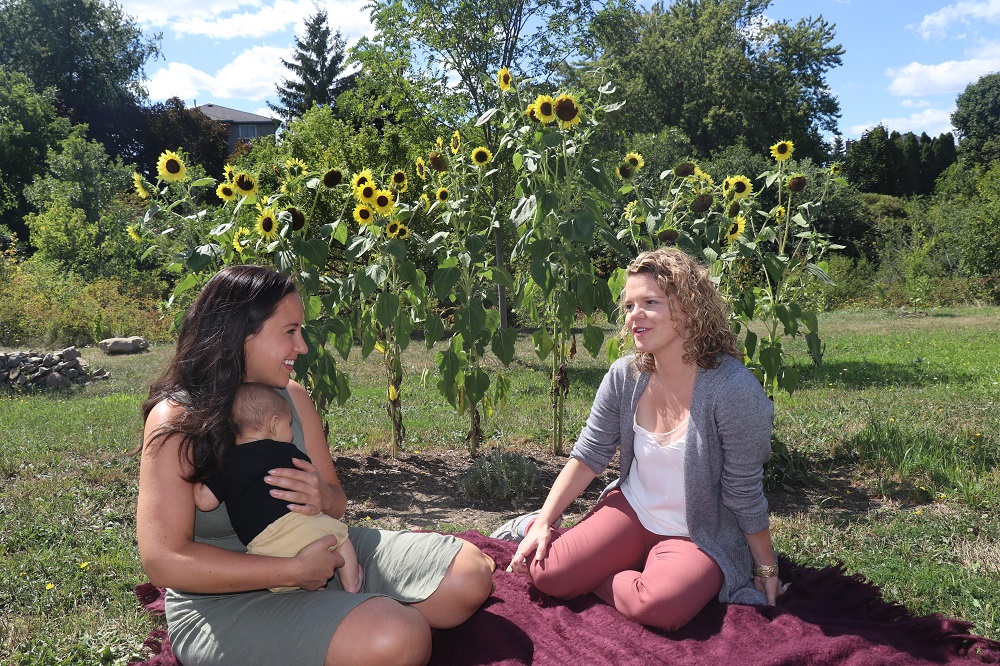In a city that never stops moving, registered social worker and clinician Amy de Nobriga is changing the way therapy is delivered—one step at a time. As the founder of The Walking Therapist, Amy brings nearly two decades of experience in mental health to an innovative practice that meets clients on the move. Offering walk-and-talk sessions through parks and neighbourhoods, as well as virtual and in-home support, her goal is to make therapy feel more natural, accessible, and deeply human.

What is your business called and what does it do?
My business is called The Walking Therapist. It offers professional counselling services with a focus on walk-and-talk therapy, providing mental health support while walking side by side in nature or through the city. In addition to walking sessions, services also include virtual counselling by phone or video, and in-home visits for those who prefer support in the comfort of their own space.
What made you want to do this work?
I’ve been a social worker for 20 years and have always been passionate about supporting others through their mental health journeys. I started The Walking Therapist because I believe deeply in holistic wellness. When the body feels well, the mind often follows. Combining physical movement with therapeutic support just made sense—it’s a natural, accessible way to enhance overall well-being.
What problem do you want to solve with the business?
Although there has been progress in how we talk about mental health, therapy can still carry stigma or feel intimidating. I wanted to create a service that makes therapy feel natural, accessible, and easy to integrate into daily life. Whether it’s during a walk through the park, a phone call on your lunch break, or a session in your own home, therapy should meet people where they are, both emotionally and physically. At its core, this work is about human connection and making support feel personal and approachable.
Who are your clientele demographics?
With over 20 years of experience as a social worker, I’ve had the opportunity to work with children, youth, adults, couples, families, and older adults. I have supported individuals facing a wide range of mental health challenges, life transitions, and emotional struggles. My services are open to anyone who feels that therapy could support them in making meaningful change in their life, regardless of age or background.
How does your business make money and how does it work?
The Walking Therapist offers professional mental health counselling services. Sessions can be covered through extended health insurance benefits, and I accept a wide range of insurance plans. In many cases, I’m able to offer direct billing, meaning clients don’t need to pay upfront, as I can bill the insurance provider directly. For those without coverage, private pay options are also available.
If someone is curious about therapy or unsure if it’s the right fit, I offer a free 15-minute phone or video consultation to answer questions and explore their needs. If they choose to move forward, we book a session and continue at a pace that feels right for them, whether that’s ongoing support or just a few sessions to get started.
Where in the city can we find your profession?
As The Walking Therapist, I offer mobile services throughout the Greater Toronto Area. I travel to meet clients for walk-and-talk sessions in their local neighbourhoods or preferred outdoor spaces. If you’re outside the Toronto area, therapy is still accessible through phone or video sessions, so support is always within reach, no matter where you’re located.
What is the best question a prospective customer could ask a member of your profession when comparing services?
One of the best questions to ask is: “What is your approach to therapy, and how do you tailor it to meet individual needs?”
Every therapist brings a different style, background, and focus to their work. Asking this question helps clients understand whether the therapist’s approach aligns with their values, goals, and comfort level. It also opens the door for conversations about flexibility, inclusivity, and how the therapist supports people through different challenges. Therapy is deeply personal, so it’s important to find someone whose approach feels like the right fit.
What is the best part about what you do, and what is the worst part?
The best part of what I do is getting to meet people where they are—both emotionally and physically—and supporting them along their journey toward healing and growth. It’s incredibly rewarding to witness small breakthroughs and help individuals reconnect with themselves in meaningful ways.
The most challenging part is navigating the logistics of the city, like getting stuck in traffic or dealing with public transit delays when travelling to meet clients across Toronto. But even with those challenges, it’s worth it to bring therapy directly to where people feel most comfortable.
What is your favourite joke about your own profession?
“How many therapists does it take to change a light bulb?”
Just one—but the light bulb really has to want to change.
Where can we follow you?
You can follow me on Instagram, visit my website or reach out by phone or text at 647-505-7400. I’d love to connect and look forward to hearing from you soon!
PAY IT FORWARD: What is another local business that you love?
One local business I absolutely love is Janelle’s Kitchen, located at the corner of College and Ossington in Toronto’s west end. It’s a cozy French brunch spot open Wednesday to Sunday. Janelle, the owner and chef, started the business during the pandemic, and it has since grown into a welcoming, vibrant space.
Not only is the food incredible, but the atmosphere is warm and community-focused. Janelle makes everyone feel at home and also supports local artists by offering her space as a free gallery to showcase their work. It’s a woman-owned business that truly embodies heart, creativity, and connection—I always encourage people to stop by for a delicious brunch and a beautiful experience.




